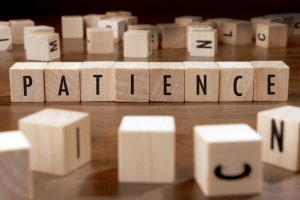Trading is a very stressful but exciting activity – its constant ups and downs lead to the full spectrum of emotions, from positive ones such as happiness, elation and joy, through to more negative emotions, such as fear, irritation, sadness and even depression.
But is it a reason to quit? No! We all have down phases. Sometimes, when things just aren’t going our way, we just need a little help and guidance.
Let’s have a look at 26 of the most inspiring quotes from famous traders, investors, businessmen and economists. This ongoing learning, improving and inspirational resource can be used to remind you of all-important concepts to keep in mind, or simply to give you an insight on subjects you might need help with.

26 Awesome Quotes from the Finance World’s Biggest Legends
Let’s start with a classic…
Rule number one of investing is never lose money. Rule number two is never forget rule number one – Warren Buffet
Most people are in the trading industry to make money, while the real trick is not to lose any money! If you are indeed losing money, you might not be using the right trading strategies, or you might need to create a more clear and sound trading plan.
I’m always thinking about losing money as opposed to making money. Don’t focus on making money, focus on protecting what you have – Paul Tudor Jones
If you have an approach that makes money, then money management can make the difference between success and failure […] I try to be conservative in my risk management. I want to make sure I’ll be around to play tomorrow. Risk control is essential – Monroe Trout
Money management is very important to succeed in trading
My major problem was not the number of points I lost on the trade, but that I was trading far too many contracts relative to the equity in the accounts that I handled. My accounts lost something like 60 to 70 percent of their equity in that single trade – Paul Tudor Jones
Money management and risk control are two extremely important concepts in trading, making use of them will help you to better manage your market exposure and preserve your capital and manage your positions, determining the take-profit, stop-loss, leverage, etc. All these rules must be included in your trading plan – as they do a lot of the “thinking” for you, they help you to make faster decisions, as well as to reduce trading stress.
I’m more concerned about controlling the downside – Marty Schwartz
Whenever I enter a position, I have a predetermined stop. That is the only way I can sleep. I know where I’m getting out before I get in. The position size on a trade is determined by the stop, and the stop is determined on a technical basis – Bruce Kovner

The psychological part of the trading shouldn’t be underestimated
The most difficult task in speculation is not prediction but self-control. Successful trading is difficult and frustrating. You are the most important element in the equation for success – Linda Bradford Raschke
In trading, the main challenge is often yourself! Your emotions and how you control them will affect your decision making process, as well as your reactions to profits and losses – in short, your long-term trading performances. The way in which you follow your money management rules will be affected by your mental state and whether or not you execute your trading plan!
The key to trading success is emotional discipline – Victor Sperandeo
Greed, Fear, Impatience, Ignorance, and Hope will all fight for mental dominance over the speculator. Then, after a few failures and catastrophes the speculator may become demoralized, depressed, despondent, and abandon the market and the chance to make a fortune from what the market has to offer – Jesse Lauriston Livermore
Never back down: it takes time to become a profitable trader
Successful investing takes time, discipline and patience. No matter how great the talent or effort, some things just take time: You can’t produce a baby in one month by getting nine women pregnant – Warren Buffet
You should always remember that good things take time to happen. Never discourage yourself on the way to greatness and success. Being patient and disciplined will always help you in your life, not only in trading, but also to achieve greater long-life goals. Self-discipline, will power, persistence and consistency are equally important skills.
Every trader has strengths and weakness. Some are good holders of winners, but may hold their losers a little too long. Others may cut their winners a little short, but are quick to take their losses. As long as you stick to your own style, you get the good and bad in your own approach – Michael Marcus

Patience & Discipline help you to deal with losses or gains
Learn to take losses. The most important thing in making money is not letting your losses get out of hand – Marty Schwartz
Cut your losses and let your profits run
Nearly 90% of traders take profits too early because it’s easy to do. The same percentage of traders also lose money at the end of the year because they do what is easier, not what they should be doing! You can dramatically improve your chances of success in trading by simply having the patience and discipline to wait for the right opportunity and follow the trading plan you’ve worked on and back-tested.
A loss never bothers me after I take it. I forget it overnight. But being wrong – not taking the loss – that is what does damage to the pocketbook and to the soul – Jesse Lauriston Livermore
One common adage…that is completely wrongheaded is: You can’t go broke taking profits. That’s precisely how many traders do go broke. While amateurs go broke by taking large losses, professionals go broke by taking small profits – William Eckhardt
We are in the business of making mistakes. The only difference between the winners and the losers is that the winners make small mistakes while the losers make big mistakes – Ned Davis
Admit you’re wrong, learn from your mistakes & don’t think you’re a super hero
Don’t be a hero. Don’t have an ego. Always question yourself and your ability. Don’t ever feel that you are very good. The second you do, you are dead – Paul Tudor Jones
Making money has nothing to do with intelligence. To be a successful trader, you have to be able to admit mistakes. People who are very bright don’t make very many mistakes. Besides trading, there is probably no other profession where you have to admit when you’re wrong. In trading, you can’t hide your failures – Victor Sperandeo
It’s important to learn from your mistakes – apparently a difficult thing to do, given that most traders tend to repeat the same mistakes over and over again. There is one tool that can help you monitor and follow your previous trades and your overall progression: a trading journal. A trading journal can give you an idea of what you have already achieved and what you still need to do.
The most important rule of trading is to play great defence, not great offense. Every day I assume every position I have is wrong – Paul Tudor Jones
They (traders) would rather lose money than admit they’re wrong…I became a winning trader when I was able to say, “To hell with my ego, making money is more important” – Marty Schwartz
It’s not about being right or wrong, rather, it’s about how much money you make when you’re right and how much you don’t lose when you’re wrong – George Soros

Which kind of market analysis should you use?
I realized that technical analysis didn’t work when I turned the chart upside down and didn’t get a different answer – Warren Buffet
We often hear: “Should I use Fundamental or Technical analysis to make my trading decisions?” or “Which trading analysis works the best?” Broadly speaking, there are 3 types of market analyses: Fundamental Analysis, Technical Analysis and Sentiment Analysis, and they all look at the market in different ways. Some will tell you that Fundamental and Technical Analysis are more useful than Sentiment Analysis, others will say that you cannot use one without the others, or that you shouldn’t use Technical Analysis if your strategy is predominately based on Fundamental Analysis. The right analysis method for you will be based on your goals, personality, financial situation and how much time you have.
Fundamental analysis: Very powerful in terms of determining long-term direction, but lacks short-term applicability – John Forman
Everything’s tested in historical markets. The past is a pretty good predictor of the future. It’s not perfect. But human beings drive markets, and human beings don’t change their stripes overnight. So to the extent that one can understand the past, there’s a good likelihood you’ll have some insight into the future – James Simons
Know yourself to be a better trader
When you have an objective look at yourself, you will be able to find the right trading style that suits your personality and schedule. Once you’ve evaluated yourself, your trading performances will usually improve, because you’ll avoid many “basic” trading errors and you have a more thoughtful investment strategy, because you know yourself better!
You have to know what you are, and not try to be what you’re not. If you are a day trader, day trade. If you are an investor, then be an investor. It’s like a comedian who gets up onstage and starts singing. What’s he singing for? He’s a comedian – Steven Cohen
Conclusion
It’s always better to learn from the best, they have been very successful in their careers! It can be profitable to be creative, but usually you’ll find better results with what has worked in the past, especially from those who have experienced so much success (and made a lot of money!).
Which famous traders have inspired you? Let us know in the comments below!
Happy Trading!
START LEARNING FOREX TODAY!
share This:







Leave a Reply